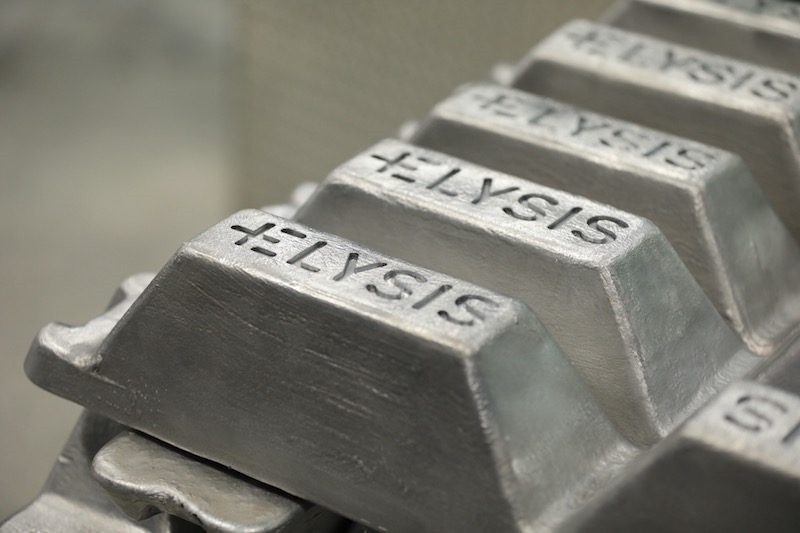

On 29th June 2021, the construction of the first commercial-scale prototype cells of ELYSIS’ inert anode technology commences at Rio Tinto’s Alma smelter in Saguenay-Lac-Saint-Jean, Quebec eliminating all direct greenhouse gases from aluminium smelting, which is considered a major step forward.

The Honourable Francois-Philippe Champagne, Minister of Innovation, Science and Industry joined representatives from ELYSIS, Alcoa and Rio Tinto to mark the commencement of construction and announce a further $20 million financial contribution from the Government of Canada to support the project.
The federal government's financial support will enable the creation of a unique commercial size inert anode technology showroom for future customers and will help develop the supply chain by involving local and regional equipment manufacturers and suppliers in the project.
The Minister said: “The investment announced today will help Canada’s world-class aluminium producers become leading players in the low-carbon economy and support key local players throughout the supply chain. We are proud to support ELYSIS in developing the world’s first carbon-free aluminium that will help Canada achieve its net-zero objectives by 2050. This investment will foster innovation, create good jobs here in Quebec and help support the future competitiveness of Canada’s aluminium industry.”
ELYSIS is a collaboration of Alcoa and Rio Tinto that is developing a breakthrough technology, known as inert anode that eliminates all direct greenhouse gases (GHGs) from the traditional smelting process and instead produces oxygen.
The technology has the potentiality to transform the aluminium industry, with a significant reduction in its carbon footprint.
Vincent Christ, CEO of ELYSIS, said: “This is a great day for ELYSIS. It means that we are becoming the first technology company in the world to build commercial-size inert anode cells. While we refine the technology in our R&D Centre, we start the construction of our prototype cells. This shows our confidence in our process and the know-how of our team. The combination of ELYSIS' zero CO2 technology and Quebec's renewable energy will be a great competitive advantage for the future. I would like to thank the government for its support and all the partners for their commitment.”
The inert anode prototype cells will operate on a commercial scale typical for large modern aluminium smelters, using an electrical current of 450 kiloamperes (kA).
ELYSIS is working to complete the technology demonstration by 2024 followed by the commercialization activities.
The technology at a glance:
Alcoa and Rio Tinto will continue to support the ELYSIS development program alongside the Governments of Canada and Quebec.
ELYSIS is working closely with Alcoa's Technical Center, where the zero-carbon smelting technology was invented, and the Rio Tinto technology design team in France.
Alcoa's Technical Center supports ELYSIS in the manufacture of proprietary materials for the new anodes and cathodes that are essential to the ELYSISTM process. The Rio Tinto technology team in France is creating commercial-scale designs for the ELYSISTM technology.
Louis Langlois, President, Alcoa Canada and ELYSIS board member, said: “We appreciate the support of the Government of Canada and its invaluable assistance in helping to support the continued research and development of the ELYSIS technology. We are proud to have developed the carbon-free smelting process that became the basis of this joint venture, which offers tremendous opportunity to address the challenges of climate change and contribute to improved environmental performance.”
Samir Cairae, Rio Tinto Aluminium Managing Director Atlantic Operations and ELYSIS board member said: “Today marks a real step towards the future of the aluminium industry, by progressing this breakthrough technology to cut carbon emissions. Rio Tinto is committed to supporting its ongoing development here in Quebec where we already use clean hydropower to deliver some of the world’s lowest carbon aluminium. Combining this technology with renewable hydropower holds the promise of zero-carbon aluminium smelting.”



Responses






